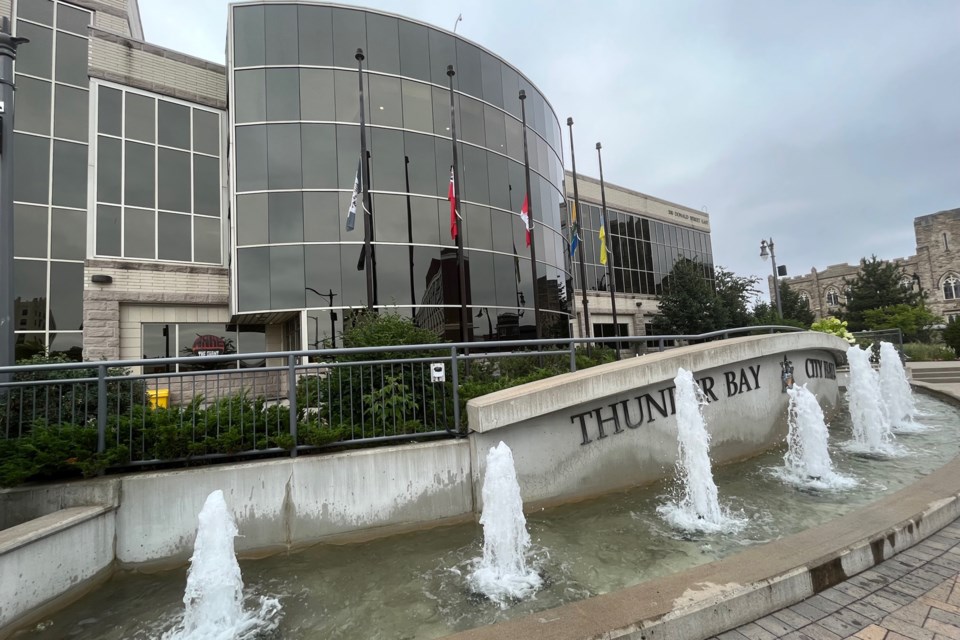THUNDER BAY — Thunder Bay’s city council will consider a recommendation to repeal the city’s COVID-19 vaccine policy on Monday, ending the requirement for city staff to provide proof of vaccination or submit to regular testing.
In a report released this week, city administration shared numbers showing nearly all staff complied with the policy after it was introduced in September of 2021, with the vast majority providing proof of vaccination.
A handful of staff did not comply, resulting in unpaid suspensions and, in at least some cases, grievances against the city.
The report also reveals city administration had already suspended the vaccine policy's testing requirement in September of 2022, after seeking guidance from the local health unit.
Administration requires council’s approval to officially repeal the policy.
In an interview, city manager Norm Gale said the numbers presented in the report show the policy worked well, despite some opposition from the city’s largest union and a small number of workers who refused to comply.
After council voted to apply the policy to all staff and city councillors in September 2021, staff reported, fully 97 per cent of active employees provided proof they had received two doses of a COVID-19 vaccine as required.
Another 61 employees were not vaccinated or declined to provide proof, but submitted to regular rapid antigen testing.
Five employees, meanwhile, refused to participate in the testing program and were suspended without pay according to the city’s policy.
Gale called the 97 per cent compliance an “impressive rate” that “says a lot about the people who work for the City of Thunder Bay.”
“That is a very, very high percentage of our staff, and I’m quite proud of that. It shows engagement, it shows commitment to the work they do, and commitment to their colleagues and the public that they serve.”
Some other Ontario municipalities passed more strict vaccine policies that resulted in termination for employees who refused to provide proof of vaccination. In Sudbury, for example, over 50 city workers lost their jobs.
While some of the five City of Thunder Bay workers who refused to comply with the policy did file grievances, staff said all have now been reinstated, and none left their employment with the city over the policy.
Gale declined to comment on the outcome of the grievances.
He credited the city’s approach, as well as what he described as a positive relationship with union leaders on the issue, for that outcome.
“We and the union leadership … did everything we could to work together in an open, transparent way, and to accommodate everybody’s needs while at the same time protecting the workplace and protecting the services and programs we deliver.”
“I appreciate what union leaders have said and how they’ve handled this situation.”
CUPE 87, which represents over 800 city staff, making it the largest municipal bargaining group, had opposed the vaccine policy.
The union could not immediately be reached for comment on this article.
ATU 966, the union representing transit workers, by contrast, came under fire from at least one of its members for allegedly failing to provide fair representation to a driver who challenged the policy. The union has disputed that allegation.
The city lifted the suspensions of workers who did not submit to testing in September, when it received guidance from the Thunder Bay District Health Unit supporting an end to the testing policy.
In a brief statement provided to TBnewswatch, the health unit offered little insight into what that guidance was.
“TBDHU supported the city’s decision to drop the testing component of their vaccine policy in September 2022,” the statement reads. “With regards to the vaccine policy, this is the city’s decision to make based on their own assessment and processes.”
The city's director of human resources and corporate safety, Karie Ortgiese, said the health unit had supported the conclusion weekly testing no longer served a useful purpose.
For his part, Gale suggested the risks of COVID-19 are now lower, and better understood.
“How many people have had COVID, the presence of vaccinations, things we’re doing in the workplace to help protect people, people’s understanding of measures they need to take to keep themselves safe and reduce chances of infection. This has all changed and evolved, and we’re in a better place now than we were in the fall of 2021.”
City staff noted the majority of Ontario municipalities have already repealed their own vaccine policies, or are in the midst of doing so.
